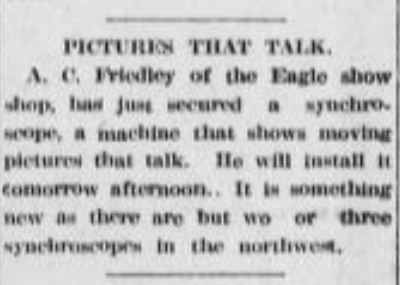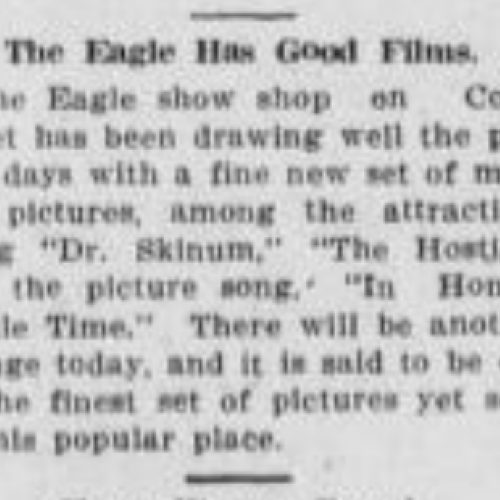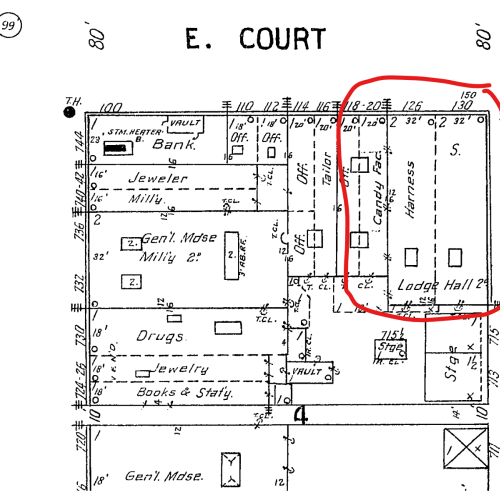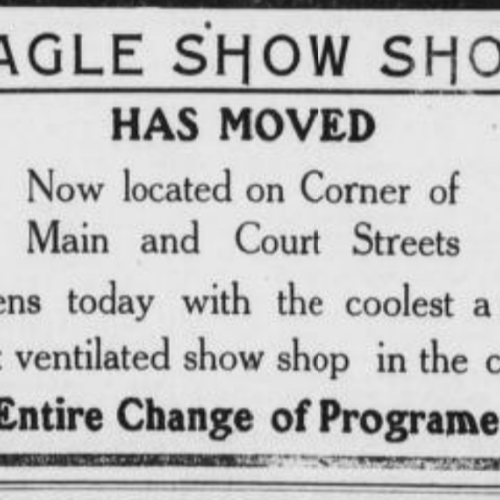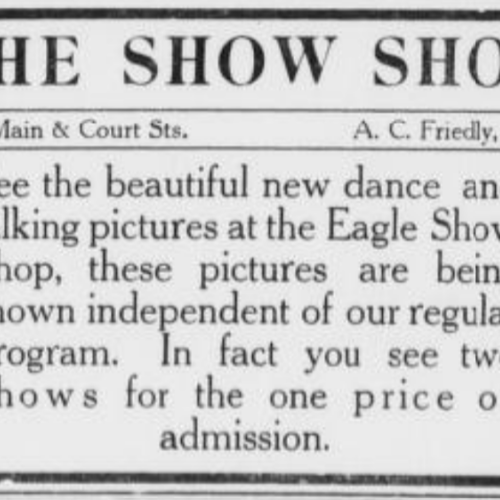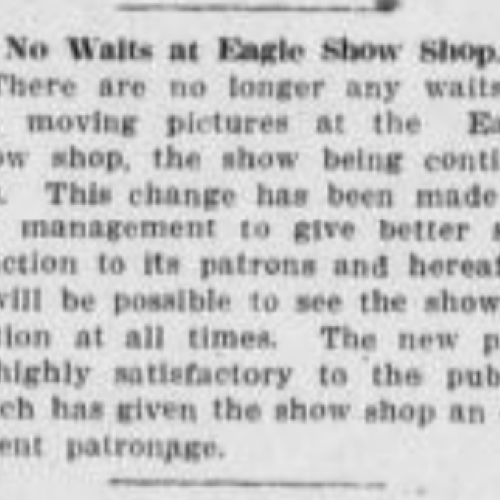It is speculated that the Eagle Show Shop Theater formally opened it’s doors in Pendleton, Oregon on Tuesday, January 21, 1908 on 120 S.E. Court St and ran for one year before it’s premature shut down in 1909. The new parlor was managed by previous Star Theater associate, William Trites and owned by A.C. Friedly. Friedly acquired the Eagles Building, formally recogized as the Eagles Lodge in late 1907. The Eagles building was constructed in 1905 for commercial use and consisted of 3 stories. The architectural style was a combination of Italianate and Richardsonian Romanesque while the construction was mainly made of brick.
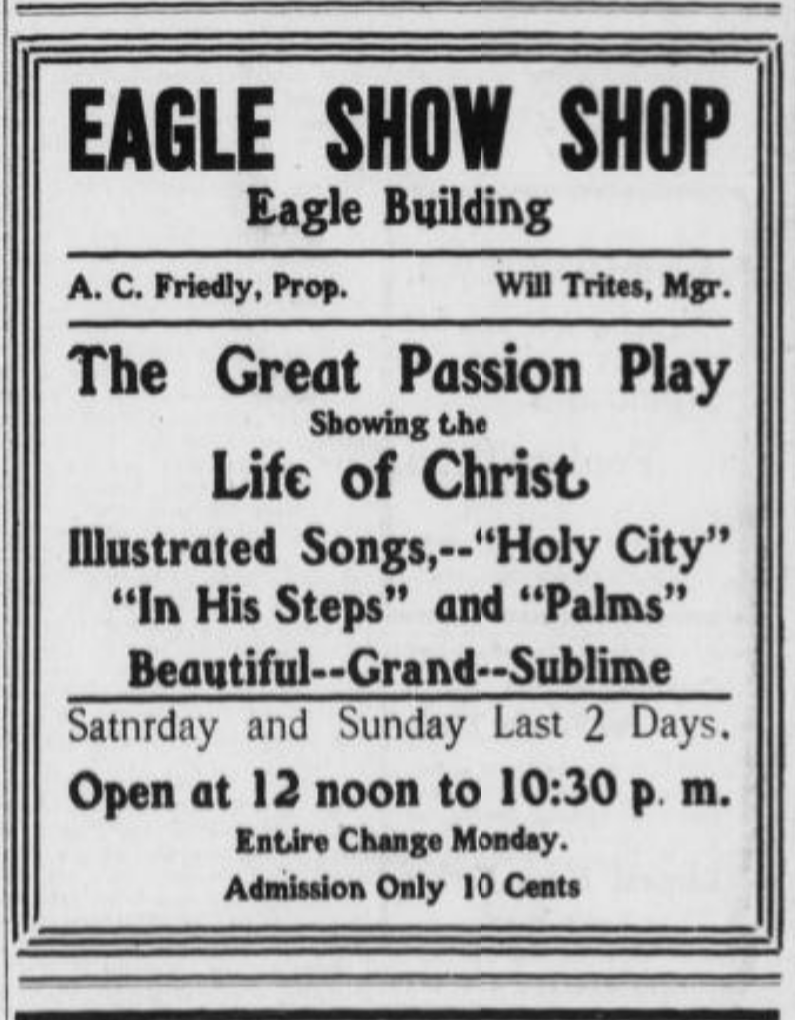
On the evening of January 21, Mr. Friedly and Mr. Trites premiered one of the theater’s first attractions and moving pictures, “The Great Passion Play Series,” and sold tickets at 10 cents a piece, deeming it a much more affordable option for Pendleton natives and visitors. According to an advertisement under the amusement section of the East Oregonian, the price was unbeatable compared to the high ticket prices of the same show that premiered at the Marquam Grand Theater in Portland. The theater presented exclusively presented “The Life of Christ” with accompaniment of illustrated songs,-- “Holy City” “In His Steps” and “Palms” on Saturday and Sunday from 12 noon to 10:30 p.m. There was a moving picture change expected to come into affect the following Monday. The theater later remarked on overflow of crowds it received that week.
In advertisement fragments found in the East Oregonian, associates of the Eagle Show Shop usually promoted pictures that were suitable for all ages. The theater consistently released daily and weekly advertisements in the East Oregonian newspaper, updating locals and visitors of new program changes. The company made an effort to play first-class pictures, adding on new titles each week. A few titles included “Race for a Wife” and “Error in Justice” which were all in coloring and accompanied by illustrated songs.
In early September 1908, an advertisement in the East Oregonian announced that A.C. Friedley secured a synchroscope, an early film and sound-synchronization device invented by German film producer, Jules Greenbaum. In 1908, Greenbaum enlisted contracts with American companies including Carl Laemmle's Movie Service Company in Chicago. According to the short blurb, the Eagle Show Shop Theater was one of three theaters in the northwest to procure this fleeting machine.
